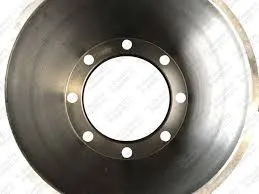
-
 Afrikaans
Afrikaans -
 Albanian
Albanian -
 Amharic
Amharic -
 Arabic
Arabic -
 Armenian
Armenian -
 Azerbaijani
Azerbaijani -
 Basque
Basque -
 Belarusian
Belarusian -
 Bengali
Bengali -
 Bosnian
Bosnian -
 Bulgarian
Bulgarian -
 Catalan
Catalan -
 Cebuano
Cebuano -
 Corsican
Corsican -
 Croatian
Croatian -
 Czech
Czech -
 Danish
Danish -
 Dutch
Dutch -
 English
English -
 Esperanto
Esperanto -
 Estonian
Estonian -
 Finnish
Finnish -
 French
French -
 Frisian
Frisian -
 Galician
Galician -
 Georgian
Georgian -
 German
German -
 Greek
Greek -
 Gujarati
Gujarati -
 Haitian Creole
Haitian Creole -
 hausa
hausa -
 hawaiian
hawaiian -
 Hebrew
Hebrew -
 Hindi
Hindi -
 Miao
Miao -
 Hungarian
Hungarian -
 Icelandic
Icelandic -
 igbo
igbo -
 Indonesian
Indonesian -
 irish
irish -
 Italian
Italian -
 Japanese
Japanese -
 Javanese
Javanese -
 Kannada
Kannada -
 kazakh
kazakh -
 Khmer
Khmer -
 Rwandese
Rwandese -
 Korean
Korean -
 Kurdish
Kurdish -
 Kyrgyz
Kyrgyz -
 Lao
Lao -
 Latin
Latin -
 Latvian
Latvian -
 Lithuanian
Lithuanian -
 Luxembourgish
Luxembourgish -
 Macedonian
Macedonian -
 Malgashi
Malgashi -
 Malay
Malay -
 Malayalam
Malayalam -
 Maltese
Maltese -
 Maori
Maori -
 Marathi
Marathi -
 Mongolian
Mongolian -
 Myanmar
Myanmar -
 Nepali
Nepali -
 Norwegian
Norwegian -
 Norwegian
Norwegian -
 Occitan
Occitan -
 Pashto
Pashto -
 Persian
Persian -
 Polish
Polish -
 Portuguese
Portuguese -
 Punjabi
Punjabi -
 Romanian
Romanian -
 Russian
Russian -
 Samoan
Samoan -
 Scottish Gaelic
Scottish Gaelic -
 Serbian
Serbian -
 Sesotho
Sesotho -
 Shona
Shona -
 Sindhi
Sindhi -
 Sinhala
Sinhala -
 Slovak
Slovak -
 Slovenian
Slovenian -
 Somali
Somali -
 Spanish
Spanish -
 Sundanese
Sundanese -
 Swahili
Swahili -
 Swedish
Swedish -
 Tagalog
Tagalog -
 Tajik
Tajik -
 Tamil
Tamil -
 Tatar
Tatar -
 Telugu
Telugu -
 Thai
Thai -
 Turkish
Turkish -
 Turkmen
Turkmen -
 Ukrainian
Ukrainian -
 Urdu
Urdu -
 Uighur
Uighur -
 Uzbek
Uzbek -
 Vietnamese
Vietnamese -
 Welsh
Welsh -
 Bantu
Bantu -
 Yiddish
Yiddish -
 Yoruba
Yoruba -
 Zulu
Zulu
truck disc brakes vs drum
Truck Disc Brakes vs. Drum Brakes A Comprehensive Comparison
When it comes to the braking systems in heavy-duty trucks, two primary types dominate the market disc brakes and drum brakes. Each system has its unique features, advantages, and drawbacks that influence their performance, maintenance, and overall efficiency. Understanding the differences between truck disc brakes and drum brakes can help truck owners and operators make informed decisions regarding which system is best suited for their specific needs.
Basics of Brake Systems
Truck braking systems are designed to slow down or stop vehicles safely, especially under heavy loads. The two main types of braking systems are disc brakes and drum brakes. In a disc brake system, a circular disc rotates alongside the wheel, and when the brake pedal is pressed, calipers squeeze brake pads against the disc. In contrast, drum brakes consist of a cylindrical drum that rotates with the wheel; shoes inside the drum press outward against the drum’s inner surface to create friction.
Performance and Efficiency
One of the key differences between disc and drum brakes lies in their performance characteristics. Disc brakes are typically more efficient at dissipating heat, a crucial factor since overheating can lead to brake fade—where brakes lose their effectiveness during prolonged use. This characteristic makes disc brakes particularly superior in situations involving frequent stopping, such as in urban driving or hilly terrain.
Drum brakes, on the other hand, can retain heat more than disc brakes, which might result in decreased performance under heavy braking conditions. However, they can provide stronger braking force at lower speeds, making them particularly effective for heavy loads at slower speeds, such as in industrial applications.
Maintenance Considerations
truck disc brakes vs drum

Maintenance is another crucial aspect of evaluating truck brake systems. Disc brakes tend to be easier to inspect and service than drum brakes. Their open design allows for visible inspection of wear patterns, and the replacement of brake pads can usually be completed in less time compared to the more complex task of replacing drum brake shoes.
Drum brakes require removal of the drum for inspection, which can be more labor-intensive and time-consuming. Additionally, drum brakes have a tendency to develop issues such as drum warping and uneven wear, which can lead to costly repairs if not addressed promptly.
Weight and Cost
In terms of weight, disc brakes are generally lighter than drum brakes, which can contribute to overall vehicle efficiency. This weight advantage is particularly relevant for commercial trucking operations where every pound counts toward fuel efficiency and payload capacity.
When it comes to cost, drum brakes are often less expensive to manufacture and replace. However, the long-term maintenance costs can be higher due to the potential for more frequent repairs and the labor involved in servicing them. Fleet managers must weigh the initial savings against these long-term costs to determine the best choice for their operations.
Conclusion
When deciding between disc brakes and drum brakes for trucks, several factors must be considered including performance, maintenance, weight, and cost. Disc brakes generally offer better performance in dynamic braking situations and easier maintenance, making them an ideal choice for modern truck applications, especially for those that frequently navigate urban environments or hilly terrain.
Conversely, drum brakes may still have valid applications, particularly in low-speed environments where strong stopping power at lower speeds is beneficial. Ultimately, the choice between disc and drum brakes will depend on the specific demands of the trucking application, weighing factors such as driving conditions, load requirements, and budget constraints. By understanding the strengths and weaknesses of each system, truck operators can make informed decisions that will enhance safety and efficiency on the road.
-
What Are Drum BrakesNewsJul.07,2025
-
Understanding Brake Drum MaterialNewsJul.07,2025
-
Semi-Trailer Brake Drum: A Key Component for Extreme Loads and Long-Distance TransportNewsJul.07,2025
-
Drum Brake Pads for SaleNewsJul.07,2025
-
Brake Drums for SaleNewsJul.07,2025
-
Brake Drum ManufacturerNewsJul.07,2025
-
Aluminum Brake Drums: The Future of High-Performance CarsNewsJul.07,2025
